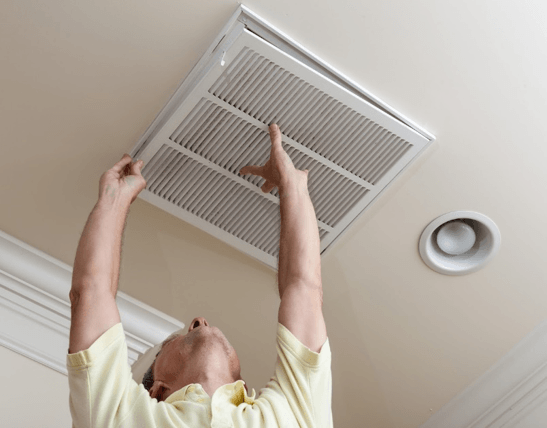You probably attend to your heating and cooling system so you can keep your home at the ideal temperature. You may even factor in utility costs when you think about your HVAC system. However, some homeowners might not realize the importance of a regular maintenance task — changing the filter on the HVAC system.
A good rule of thumb is to change your HVAC filter every 90 days. However, you might want to change it more often if you have a denser filter or if you have a lot of pets. Find out what happens if you don’t adhere to this schedule — or don’t change the filter at all.
Repair or Replacement Bills
Central air systems typically feature one filter located near the return air duct or the blower compartment in the unit. Its purpose is to clean the air before it reaches the air handler and the internal workings of the unit.
Two main issues can arise if the filter becomes clogged with dust and debris. One issue is that some of the dust and debris get into the furnace. They can wreak havoc on the internal workings of your unit. You may end up having to call in the HVAC experts to have the furnace cleaned and even repaired.
The other issue that can arise is that the restricted air flow causes the furnace to work overtime. What’s more, the furnace won’t have air to ventilate its inner workings while it’s working so hard. If the problem persists long enough, the furnace can break down. In that case, you may be looking at a replacement bill.
Higher Energy Bills
Most homes have either electric or natural gas furnaces. Either fuel type costs you money in your energy bills. On a similar note to the point above, clogged filters can also lead to an increase in those energy bills.
So a clogged filter restricts the air flow to the furnace, which forces it to work harder. Well, even if the furnace doesn’t break down, it’s using energy to work. When your furnace is working overtime because of restricted air flow, those utility bills are just running up.
Allergic Reactions
The particles that the air filter keeps out of your unit aren’t just dirt. Dust is at least partially made up of the following:
- Pollen
- Pet dander
- Dust mites
- Bacteria
- Insect bodies and feces
What’s more, parts of the dust particles can soak up other contaminants. Many people have at least a mild allergic reaction when they breathe in dust or get it in their eyes.
Your HVAC unit takes some air from outside and mixes it with air from indoors, sends it through a heater or cooling coil, and then blows it throughout your house. If a dirty filter lets dust into the unit, said dust usually ends up in your home. As a result, you may experience allergic reactions whenever you run the heater or air conditioner.
Dusty Home
Most homeowners try to keep their homes clean. You may not have realized what nasty stuff makes up dust, but you probably still didn’t want it all over your surfaces. Well, consider how your HVAC system blows air out of the vents and into the rooms of your home. If that air is dust-laden, obviously the dust will settle on surfaces within the room.
In fact, HVAC experts recommend you use dust as an indicator of the need to change your filter. Pay attention to whether your room seems to get dusty right after you’ve run your HVAC system. You can also look at the air vent to see if they look dirty, which means the air coming through them has likely been dusty.
Do your home a favor and go on a hunt for your system’s filter. If it’s dirty, or you can’t remember when you last changed it, go ahead and replace it. If you need any servicing of the system itself, call the experts at Advanced Heating & Cooling.


